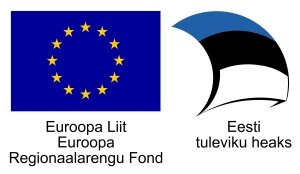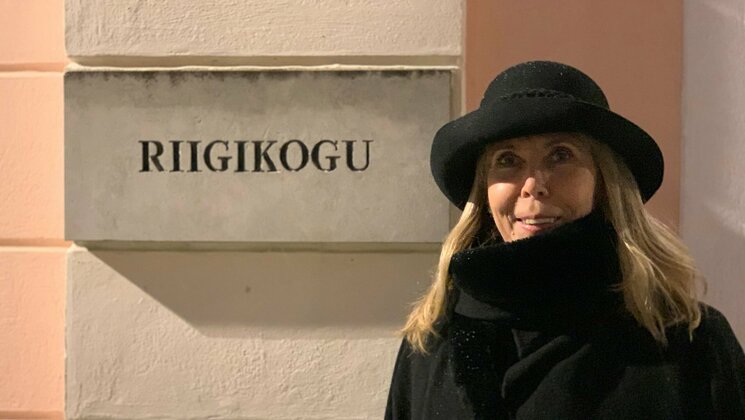-
Humanitaarteaduste ja kunstide valdkondJakobi 2, r 116-121 51005 Tartu linn, Tartu linn, Tartumaa ESTJakobi 2 51005 Tartu linn, Tartu linn, Tartumaa ESTJakobi 2, IV korrus 51005 Tartu linn, Tartu linn, Tartumaa ESTJakobi 2, III korrus, ruumid 302-337 51005 Tartu linn, Tartu linn, Tartumaa ESTÜlikooli 16 51003 Tartu linn, Tartu linn, Tartumaa ESTLossi 3 51003 Tartu linn, Tartu linn, Tartumaa ESTÜlikooli 18 50090 Tartu linn, Tartu linn, Tartumaa ESTPosti 1 71004 Viljandi linn, Viljandimaa ESTJakobi 2 51005 Tartu linn, Tartu linn, Tartumaa ESTJakobi 2 51005 Tartu linn, Tartu linn, Tartumaa ESTSotsiaalteaduste valdkondLossi 36 51003 Tartu linn, Tartu linn, Tartumaa ESTJakobi 5 51005 Tartu linn, Tartu linn, Tartumaa ESTLossi 36, ruum 301 51003 Tartu linn, Tartu linn, Tartumaa ESTNarva mnt 18 51009 Tartu linn, Tartu linn, Tartumaa ESTNäituse 2 50409 Tartu linn, Tartu linn, Tartumaa ESTNäituse 20 - 324 50409 Tartu linn, Tartu linn, Tartumaa ESTLossi 36 51003 Tartu linn, Tartu linn, Tartumaa ESTRaekoja plats 2 20307 Narva linn, Ida-Virumaa ESTRingi 35 80012 Pärnu linn, Pärnu linn, Pärnumaa ESTLossi 36 51003 Tartu linn, Tartu linn, Tartumaa ESTLossi 36 51003 Tartu linn, Tartu linn, Tartumaa ESTMeditsiiniteaduste valdkondRavila 19 50411 Tartu linn, Tartu linn, Tartumaa ESTBiomeedikum, Ravila 19 50411 Tartu linn, Tartu linn, Tartumaa ESTNooruse 1 50411 Tartu linn, Tartu linn, Tartumaa ESTL. Puusepa 1a 50406 Tartu linn, Tartu linn, Tartumaa ESTL. Puusepa 8 50406 Tartu linn, Tartu linn, Tartumaa ESTRavila 19 50411 Tartu linn, Tartu linn, Tartumaa ESTUjula 4 51008 Tartu linn, Tartu linn, Tartumaa ESTRavila 50411 Tartu linn, Tartu linn, Tartumaa ESTRavila 19 50411 Tartu linn, Tartu linn, Tartumaa ESTLoodus- ja täppisteaduste valdkondVanemuise 46 - 208 51003 Tartu linn, Tartu linn, Tartumaa ESTNarva mnt 18 51009 Tartu linn, Tartu linn, Tartumaa ESTRiia 23b/2 51010 Tartu linn, Tartu linn, Tartumaa ESTMäealuse 14 12618 Tallinn, Harjumaa ESTRavila 14a 50411 Tartu linn, Tartu linn, Tartumaa ESTNarva mnt 18 51009 Tartu linn, Tartu linn, Tartumaa ESTRiia 23, 23b - 134 51010 Tartu linn, Tartu linn, Tartumaa ESTObservatooriumi 1 61602 Tõravere alevik, Nõo vald, Tartumaa ESTNooruse 1 50411 Tartu linn, Tartu linn, Tartumaa ESTJ. Liivi tn 2 50409 Tartu linn, Tartu linn, Tartumaa ESTVanemuise 46 51003 Tartu linn, Tartu linn, Tartumaa ESTVanemuise 46 51003 Tartu linn, Tartu linn, Tartumaa ESTNooruse 1 50411 Tartu linn, Tartu linn, Tartumaa ESTAkadeemilise sekretäri tegevusvaldkondLossi 3 51003 Tartu linn, Tartu linn, Tartumaa ESTUppsala 6, Lossi 36 51003 Tartu linn, Tartu linn, Tartumaa ESTFinantsjuhi tegevusvaldkondÜlikooli 17 51005 Tartu linn, Tartu linn, Tartumaa ESTJakobi 4 51005 Tartu linn, Tartu linn, Tartumaa ESTKantsleri tegevusvaldkondUppsala 10 51003 Tartu linn, Tartu linn, Tartumaa ESTÜlikooli 18A (III korrus) 51005 Tartu linn, Tartu linn, Tartumaa ESTÜlikooli 18, ruumid 102, 104, 209, 210 50090 Tartu linn, Tartu linn, Tartumaa ESTRektori tegevusvaldkondÜlikooli 18 50090 Tartu linn, Tartu linn, Tartumaa ESTÕppeprorektori tegevusvaldkondUppsala 10 51003 Tartu linn, Tartu linn, Tartumaa ESTÜlikooli 18b 51005 Tartu linn, Tartu linn, Tartumaa ESTLossi 36-401 51003 Tartu linn, Tartu linn, Tartumaa ESTTeadusprorektori tegevusvaldkondW. Struve 1 50091 Tartu linn, Tartu linn, Tartumaa ESTArendusprorektori tegevusvaldkondNarva mnt 18 51009 Tartu linn, Tartu linn, Tartumaa ESTVanemuise 46 51003 Tartu linn, Tartu linn, Tartumaa ESTLossi 25 51003 Tartu linn, Tartu linn, Tartumaa EST
Töötuba Jouni-Matti Kuukkaneniga "Why History Matters: The Rational Grounding of Historiography"
19.-22. märts toimub töötuba Jouni-Matti Kuukkaneniga tema auhinnatud raamatu Postnarrativist Philosophy of Historiography põhjal. Töötoa raames toimub neli avalikku loengut. Kõik loengud algavad kell 16:15 ja toimuvad Jakobi 2-336, pealkirjad ning sisututvustused on allpool. Rohkem infot töötoa enda kohta.
Esmaspäev, 19. märts - Representationalism as a Paradigm and Knowing How
Richard Rorty, Robert Brandom and others have suggested that representationalism in epistemology and the philosophy of language has been a dominant paradigm since the seventeenth century. Pragmatist philosophers specifically have tried to outline an alternative to it. Also in Postnarrativist Philosophy of Historiography I labelled my position as non-representationalist. In this lecture, I consider in some more detail, what it means to make this shift in historiography. My suggestion is that historiography is still taken as knowledge producing activity but that knowledge is defined as being knowledge how, and not knowledge that.
Teisipäev, 20. märts - Truth-making and Performativity
Truth is an enigmatic concept. Despite this, it holds a special place in our culture. The idea of truth-making theories is a relatively recent attempt to explicate, why our claims and other potential truth-bearers are true. It is that something independent of our theories and us makes them true. In this lecture, I assess the idea of truth-making and use it to express, why truth-making and truth more generally is problematic in historiography. Regarding truth, my position had shifted towards deflationary theories of truth. A still better way to express this is to say that the role of truth-talk is to provide epistemic authority to what is claimed. The focus shifts therefore on the mechanisms that make our claims authoritative.
Kolmapäev, 21. märts - Inferentialism and Conceptualism
The main goal in this lecture is to understand Brandom’s inferentialism in more depth. A key idea of inferentialism is that implicit conceptual contents are made explicit by drawing inferences in a social-discursive situation. Conceptual contents entail and forbid some kinds of inferences, which is playing ‘the game of giving and asking for reasons’ in other words. Another Brandom’s presupposition is that our ordinary use of language is fundamentally normative. But where do our claims get their normative force? What is knowledge in the Brandomnian inferentialist framework? These and many other related questions are studied in detail.
Neljapäev, 22. märts - Rational Grounding of Historiography
A central question that has inspired my work is: What is historiography for? In other words, what is the fundamental rationale of researching and writing history? I argue that there is no noninferential description and knowledge, and that the dichotomy between pure description (of facts or other matters of fact) and interpretation is false. Instead, the dichotomy should be between old (inferential) and new(er) (inferential) descriptions. Both old and new inferential descriptions rely on different presuppositions, or perhaps on the presuppositions of different times. That all description is inferential is important regarding the rationale of historiography. Historiography at its best is rational criticism, which ‘unmasks’ old descriptions and their presuppositions, and proposes new rationally warranted to replace them.
Ürituse toimumist toetab Euroopa Liidu Regionaalarengu Fond (Tartu Ülikooli ASTRA projekt PER ASPERA).

Loe veel sarnaseid uudiseid




